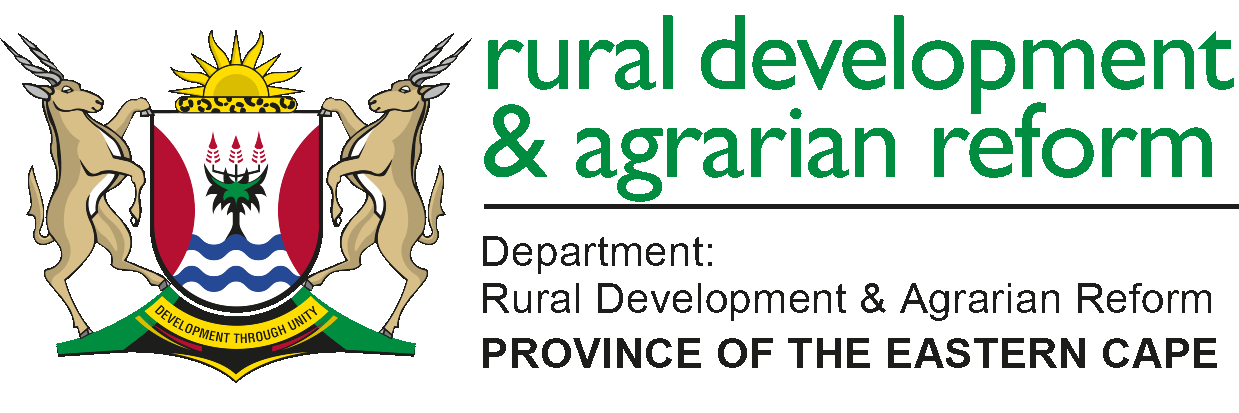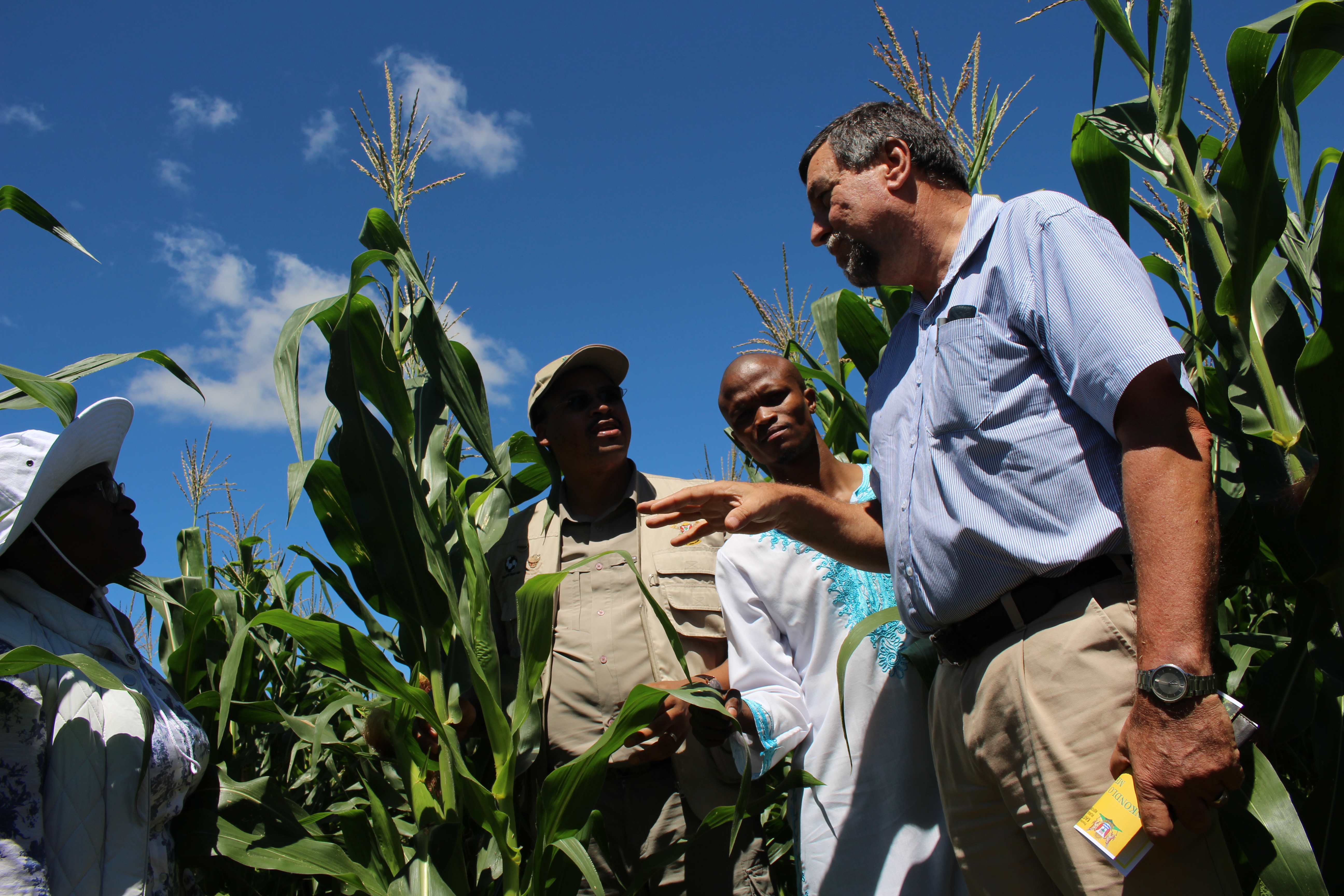RURAL LAND SOLUTION TO UNEMPLOYMENT
PUTTING rural land under production like the 100-hectare commercial maize planted in Nkondlo village outside Ngcobo is a sign that when communal land is under commercial production it can be a solution to the socio-economic challenges facing the rural communities, like unemployment.
This is according to the Eastern Cape Rural Development and Agrarian Reform MEC, Mlibo Qoboshiyane during his monitoring siyahlola visit to the Dalasile Agri park project funded and supported by his department as part of the cropping programme.
The department has invested more than R5 million into maize production in Ngcobo, covering 1 818 hectares benefiting 25 cooperatives of the area with 155 513 population whose 45,7% residents are unemployed, with local youth unemployment rate sitting and worrying 55,3%.
Qoboshiyane said the revival of this land which has been lying fallow for 30 years gave hope that when vast communal land in rural villages are brought under production they can be a solution to the high unemployment problems facing the province.
“What excites me is that commercialization and business element is part of this project. This means in the fifth year of the renewable nine-year lease, these farmers will be sustainable commercial farmers in the communal land who don’t depend on additional support from the government. This means we don’t all have to wait to have farms for us to get quality produce. One key thing is to rope in young people into the sector for them to be self sustainable,” said Qoboshiyane.
The department-assisted farmers with four tractors for soil preparations, invested about R500 000 in procuring inputs like seeds and fertilizers critical to the primary production.
The 210 member Ahh Zwelakhe agriculture cooperative is a major shareholder in the Dalasile Agri park with a controlling 51% stake, with Humansdorp agricultural cooperative owning 35 % shares and Nciba grain group owning 14 % of the business.
Dalasile Agri Park Chairperson, Yanga Dalasile said they started the park because of poverty that was ravaging villagers, whose land was lying fallow for three decades.“We are happy that we signed an offtake agreement before we started production because by the time we started we knew the price for our produce, unlike people who produced without secure markets. Communities who own the land will benefit through the lease of their maize fields, job opportunities created here, and dividends from the sale of the crop to Humansdorp Coop,” said Dalasile, adding that they pay landowners R1000 per hectare for the use of their land.
Humansdorp Coop’s Black economic empowerment head, Deon Haynes said all partners, government, community and private sector contributed to the success of this project.
“The most important part we have to always remember and keep our eye on that ball is that we have to start a business and build a business from here because if in the next three to four years we build a sustainable business and expand this, then five years from now we wouldn’t ask anything from anybody to help us put a harvest like this. Every one of us has the opportunity and responsibility to look after what is our own,” said Haynes, adding that when their business is viable, they will pay back what government supported them with through their taxes.
The 100-hectare maize plantation was started in 2017 and benefited from the heavy rainfall in the area, making the farmers estimate a 7 ton per hectare yield from their crop.
For more information contact:
Dalasile Agri Park / Yanga Dalasile on 063 179 1869
Humansdorp Co-op / Deon Haynes on 084 513 3522
DRDAR Communications / Mvusiwekhaya Sicwetsha on 082 955 8833
Eastern Cape Rural Development and Agrarian Reform’S Chris Hani Regional Director, Ms Noluvuyo Nqeno (left), MEC Mlibo Qoboshiyane, Dalasile Agri Park Chairperson, Yanga Dalasile, Deputy Chairperson, Deon Haynes look at the quality of the maize produced by rural farmers on 100 ha of communal land in Nkondlo village outside Ngcobo during the MEC’s siyahlola visit to the project financially supported by the department as part of the commercial maize production.

Copyright | Department of Rural Development and Agrarian Reform


